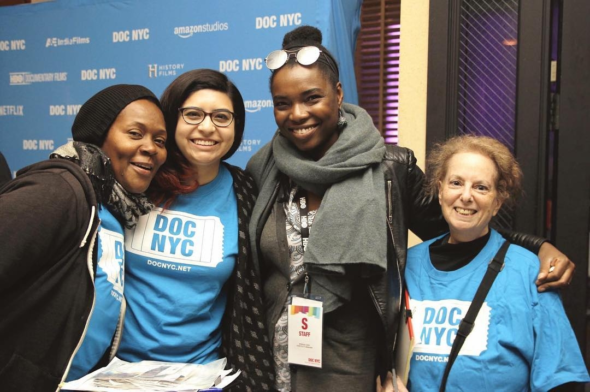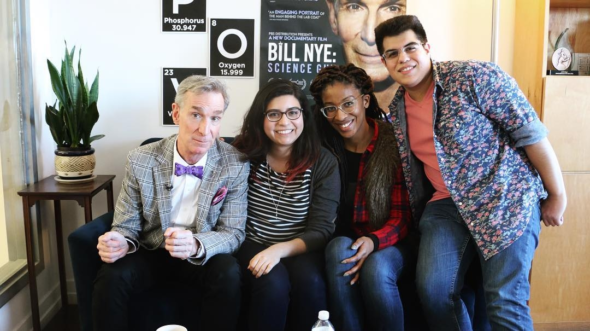Congratulations on that nice, shiny film school diploma. Now what?
Like many of my film school peers, I’ve directed a few shorts that received recognition on the undergrad film festival circuit. I’ve got festival laurels to my name. So, where’s the dream job? Where are the grants to make my own films?

The film and television industry is notoriously difficult to join and stay a part of. What’s more, as reported by Generation Opportunity, the millennial unemployment rate stands at 6.6 percent for 18-29 year olds, compared to the national average of 3.9 percent. Given those odds and the competitiveness of the film industry, following your dreams as a young filmmaker can be particularly challenging. What can a new graduate do to kick-start their career? While I don’t have all the answers, as a recent grad, I do have a few tips.
Part 1: Join Online Filmmaking Communities
Social media is the norm and it is essential for career development, allowing people from across the globe to connect. As emerging filmmakers, Facebook Groups are great for finding new opportunities, networking, getting advice from seasoned professionals, and collaborating with other creators. While LinkedIn is specifically designed for networking, I’ve found Facebook Groups to be more useful as they provide an intimate community feeling. The NYC Women Filmmakers and Blue Collar Post Collective groups have been essential for me personally because each offers advice, opportunities, and job postings.
While most film and television industry Facebook Groups are based in New York City and Los Angeles, if you don’t live in these areas, there are typically regional and city specific groups offering many of the same services. Some groups may be focused on particular crew positions such as cinematographer, production assistant, or editor. Other groups might encourage community among people of a distinct demographic or cultural background like groups geared toward women, trans or non-binary people, Latinx communities, etc.
A pro tip for being part of an online community is to be engaged: Send a short introduction to the group about your experience or needs, share opportunities and resources, and don’t be afraid to respond to other posts with a like or comment. The whole purpose of an online community is to help each other out, so even if you are new to the game, you still have something to offer that, perhaps, others need or never knew about.
Part 2: Volunteer at Film Festivals
Can’t afford a Tribeca festival pass? Volunteer! Tribeca Film Festival and DOC NYC in New York are two festivals that actually compensate volunteers for their time. By volunteering at festivals, you meet key festival staff including programmers and makers and you often get tickets to select screenings. When I volunteered at DOC NYC, they even scheduled a special screening exclusively for volunteers with filmmakers present. Volunteering at paid film festivals allows you to view award-winning films and still be able to pay rent.

Even unpaid volunteer jobs at film festivals are important since they can encourage professional connections, collaborations, and friendships. Watching films is crucial to learning and establishing your craft. If you can’t afford to attend a film festival, volunteering offers free access to award-winning films and a behind-the-scenes look at festivals you might hope to get your film into one day.
Part 3: Apply, Apply, Apply
Most jobs at your favorite network or production company will ask for “3 to 5 years of experience” for entry-level jobs. College work often doesn’t fall under this umbrella of required experience. It’s important to remember that, even though you might not get the job, you should still take a chance and apply.
Even if you work an unpaid internship coming out of college, think of it as an investment in your future. If the internship connects you with amazing opportunities, contacts in the industry, and knowledge about the particular TV and film industry you’re interested in, then the opportunity is worth it. After graduating, I was a production and programming intern with POV, the award-winning documentary film series on PBS. This work has introduced me to some of my favorite documentary filmmakers (like Sabrina Schmidt Gordon and Kirsten Johnson), allowed me to learn about the PBS system, and I even met Bill Nye the Science Guy! Remember, when looking for the ideal internship, avoid unpaid internships that don’t actually provide you with the type of marketable experience that will lead to your next job.

It is also important to keep in mind that as you work to gain more experience for your resume and reel, unpaid or low paid gigs of any type are valuable opportunities to advance your craft and connections. If you’re a young cinematographer or editor, doing a few unpaid or low-paying gigs can help you gain mentorship, experience, and clients. The key thing about doing these gigs, however, is to know when you have enough experience to be paid more. Keep in mind that your resume and reel inform a potential employer’s willingness to pay more for your work. Once you have a few good connections and a stronger reel, you can start to get more of the opportunities that interest you.
Part 4: Take a chance on yourself
The number one piece of advice I’ve received from established filmmakers is to go out there and make my own film. With rent and monthly college loan payments, it’s difficult to actually make the time to create your own work. Keep in mind that not everyone “makes it” at the same time. Just because you’re not in the director’s chair straight out of college doesn’t mean you’ll never get there. If you make your first feature film at 100 years old and still don’t get into your favorite film festival or get broadcasting, you’ve still made it.
Don’t forget, you can always make your own film festival and create your own institutions to support your particular filmmaking community. Take a chance on yourself and know that the hard work will pay off. If just one person sees your film, believe in yourself enough to know that you’ve still made it.


